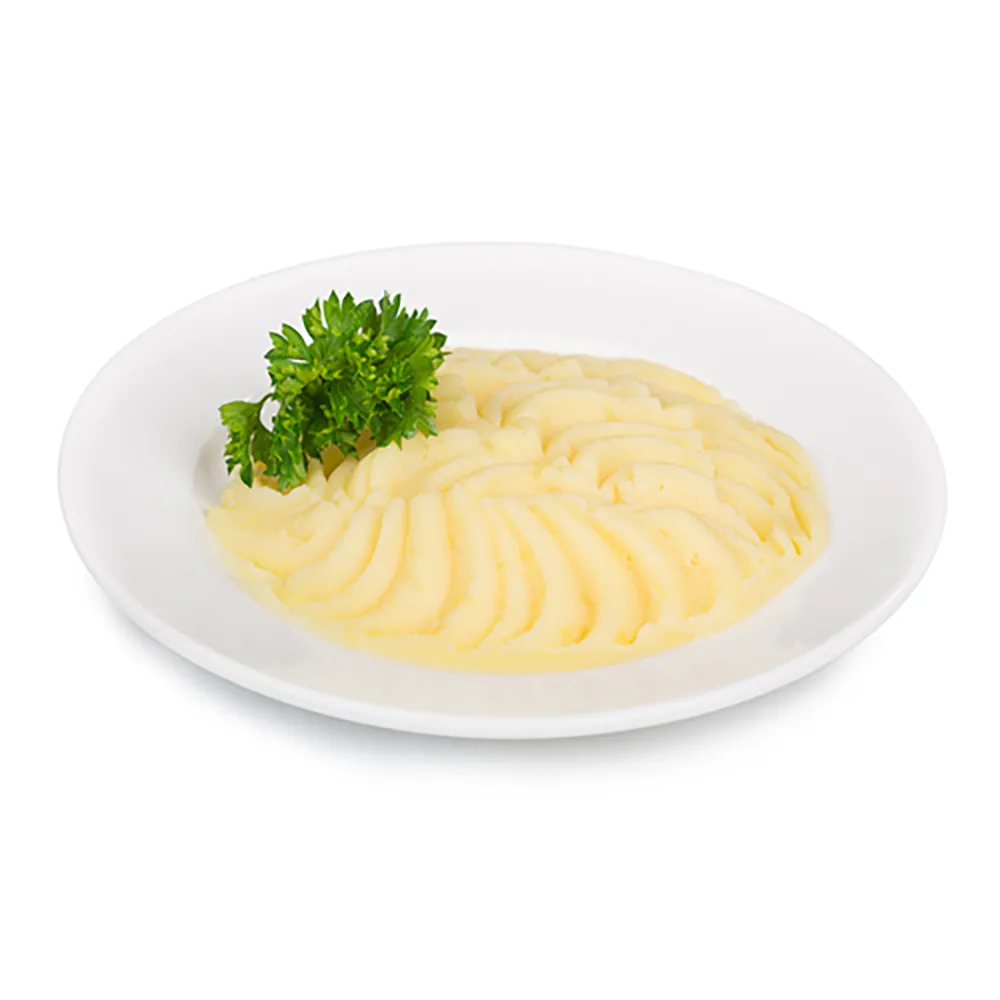
| Glycemic Index | Glycemic Load |
83.0
|
11.4
|
The glycemic index (GI) of mashed potatoes equals to 83.0, which classifies it as a high GI food. The glycemic load (GL) of mashed potatoes is equal to 11.4, which classifies it as a moderate GL food.
| Nutrition Facts | |
| Calories (kcal) | 72.0 |
| Carbohydrates (g) | 13.7 |
| Proteins (g) | 1.7 |
| Fats (g) | 1.2 |
100 grams of mashed potatoes contain 72.0 kcal (301 kJ), 1.7 grams of proteins, 13.7 grams of carbohydrates, and 1.2 grams of fats.
Mashed potatoes are a classic comfort food enjoyed around the world. Made from boiled and mashed potatoes, they have a smooth and creamy texture that is easy to swallow. Nutritionally speaking, mashed potatoes are an excellent source of carbohydrates, providing energy for your body’s needs throughout the day. They also contain small amounts of fiber as well as vitamins C and B6. The main pro of eating mashed potatoes is that they can be easily incorporated into many different meals or recipes due to their mild flavor profile – making them incredibly versatile in terms of cooking options! Additionally, if you choose to make them with low-fat milk or butter rather than cream cheese or heavy cream then this could help reduce fat intake when compared to other potato dishes like french fries. On the downside however; depending on how it’s prepared and what ingredients you use – such as adding sour cream – then it may end up being high in saturated fats which should be avoided by those trying to maintain healthy cholesterol levels . Generally speaking though – just practice moderation when consuming mashed potatoes so that any potential negatives don’t outweigh its nutritional benefits!

